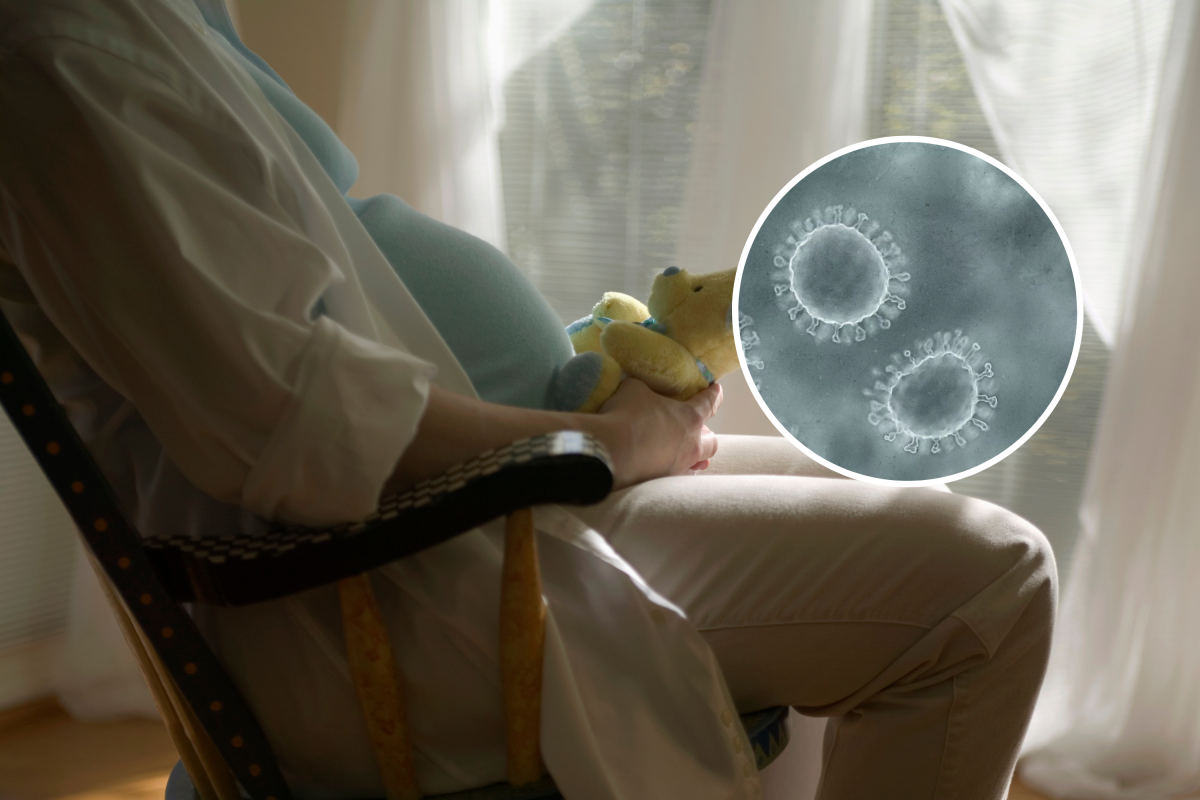With cases of norovirus, an infectious stomach bug, currently surging in the United States, experts told Newsweek that those who are pregnant should keep an eye out for symptoms.
"Anyone can get infected and sick with norovirus, and people of all ages can get infected during norovirus outbreaks," the U.S. Centers for Disease Control and Prevention (CDC) told Newsweek via email on Monday afternoon. "Pregnant women should speak to their healthcare provider right away with any medical concerns, or if they think they may have symptoms of norovirus, especially to prevent dehydration."
Why It Matters
The highly contagious illness has reached its highest levels for this time of year in more than a decade, according to the latest data from the CDC. Norovirus is the leading cause of foodborne illness in the U.S., responsible for nearly 58 percent of foodborne infections annually.
What to Know
Stephanie LaRochelle, director of infection prevention and control at Lawrence General Hospital in Massachusetts, told Newsweek the main concern is dehydration when it comes to the norovirus.
"They would want to focus on staying hydrated mostly and eating small, easy to digest meals and monitoring their symptoms closely," she said. "If they're experiencing severe dehydration or prolonged symptoms, then they should talk with their doctor."
The CDC suggests that everyone rigorously and frequently wash their hands. The organization calls it the best defense against norovirus during the peak winter season. Scrubbing the hands with soap and warm water for 20 seconds before meals is expected to help.
Scrubbing surfaces with household disinfectants or bleach can also help, LaRochelle said.
LaRochelle told Newsweek there is no risks to the fetus if the mother is pregnant with norovirus.
"Norovirus isn't known to directly affect the fetus," she said. "It doesn't seem that there's too much evidence that it's super risky but more so super uncomfortable."
Norovirus outbreaks are most common between November and April, often occurring in high-density settings like nursing homes, schools, cruise ships, and correctional facilities.
Its high transmissibility, as a tiny dose of just 10 viral particles can make a person ill, is making norovirus a persistent public-health challenge particularly as people prepare to gather for New Year's Eve.
Dr. Shara Brofman, a licensed clinical psychologist in New York, told Newsweek that "gastrointestinal symptoms are very psychologically distressing, especially during pregnancy."
"What comes to mind as particularly psychologically difficult, not to mention the physical distress, is managing uncertainty. That is: a) Worrying that the illness could negatively impact the pregnancy, and b) Not knowing when the symptoms will end, and/or if they could get worse," she said. "Of note, gastrointestinal symptoms can also overlap with, and be amplified by anxiety."
Brofman suggested people consult their doctors on how to manage symptoms but also recognize that "the symptoms are likely temporary, and acknowledging your strengths" in order to help manage the psychological side of norovirus.
"It can be easy to spiral in interpreting and worrying about the symptoms and their effects - including worrying about your worrying!" she added.

CDC Reports Rise in Norovirus Cases
The CDC has reported 91 outbreaks during the week of December 5, up from an average of 65 during the same period from 2012 to 2020.
As the illness causes an average of 900 deaths annually, mostly among older adults, along with 109,000 hospitalizations and 19 million to 21 million cases in the U.S. each year, prevention measures can be lifesaving.
The CDC has identified leafy vegetables, fresh fruits, and shellfish as a common source of norovirus outbreaks. LaRochelle added that it's "less about specific foods and more so just washing your hands" because norovirus is takes a fecal-oral route for transmission.
LaRochelle told Newsweek that it would be smart for people to avoid contaminated food and surfaces. If someone else in a household is sick, they should—as well as the people trying to avoid the virus—wash their hands, particularly after using the bathroom and before eating.
"It's over pretty quickly," she said. "Hopefully it's not too long, like two weeks that you have to avoid this person."
What Are the Symptoms of Norovirus?
The norovirus is known for causing gastroenteritis, which can have a range of symptoms from nausea, vomiting, diarrhea and stomach pain.
How Long Does Norovirus Last?
Typically, most people recover within one to three days, with the exceptions of the elderly, immunocompromised people, and some children.
What People Are Saying
Emily Oster, the founder and CEO of ParentData, a data-driven guide to pregnancy and parenting: "It's [norovirus] not a risk for birth defects or other fetal complications. That's the good news."
Dr. Georges Benjamin, executive director of the American Public Health Association (APHA), told Fortune earlier this month, "It doesn't take a lot to get people pretty sick. That's the main reason it's so infectious."
What Happens Next
The CDC continues to monitor outbreaks across the country. Health experts advise individuals to be up to date on annual flu shots and for those already experiencing symptoms of norovirus to stay hydrated.
Although there is no specific vaccine to treat norovirus, Moderna has begun trials for a potential vaccine.



















:quality(85):upscale()/2024/04/24/878/n/3019466/36c5693c662965c5d1ce91.72473705_.jpg)
 English (US) ·
English (US) ·